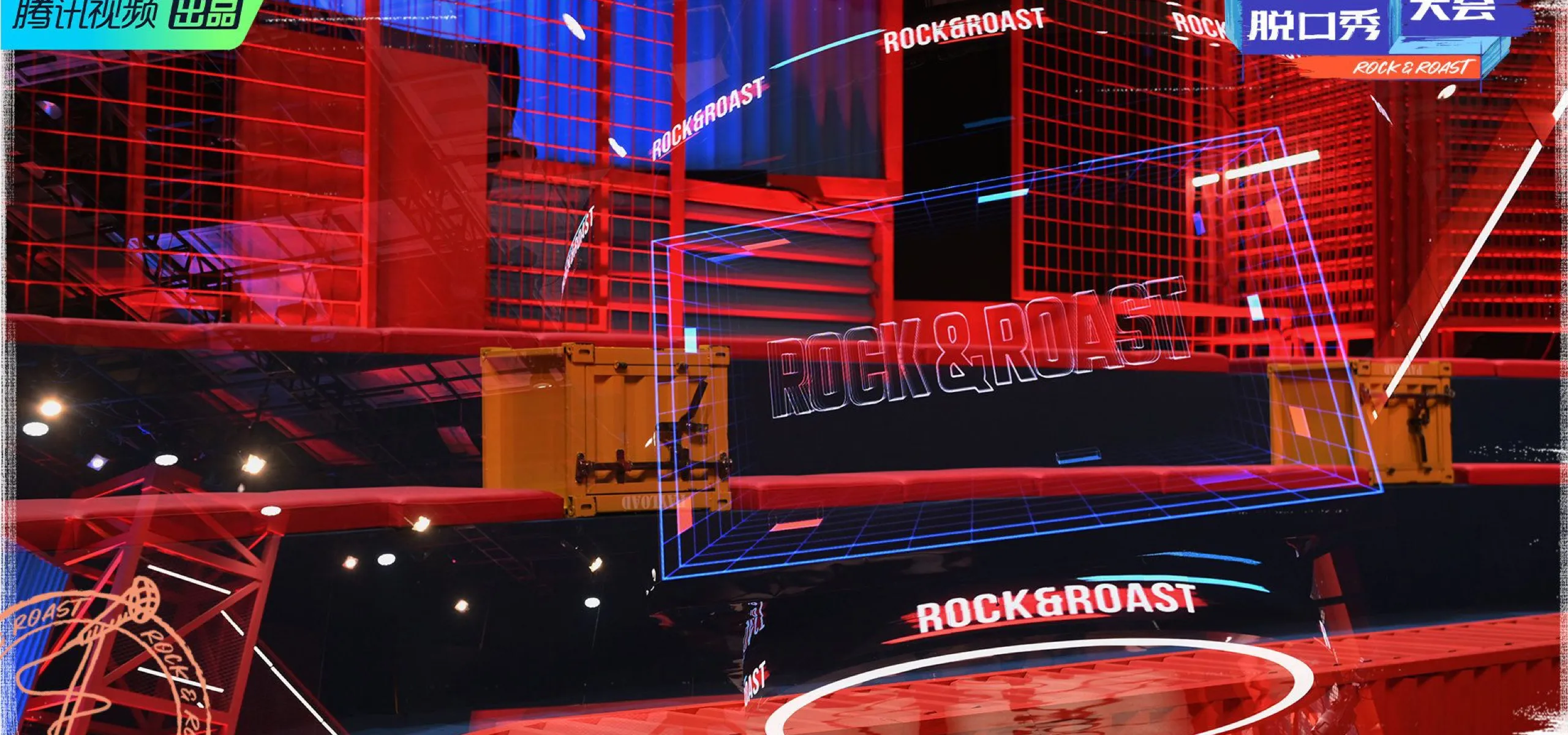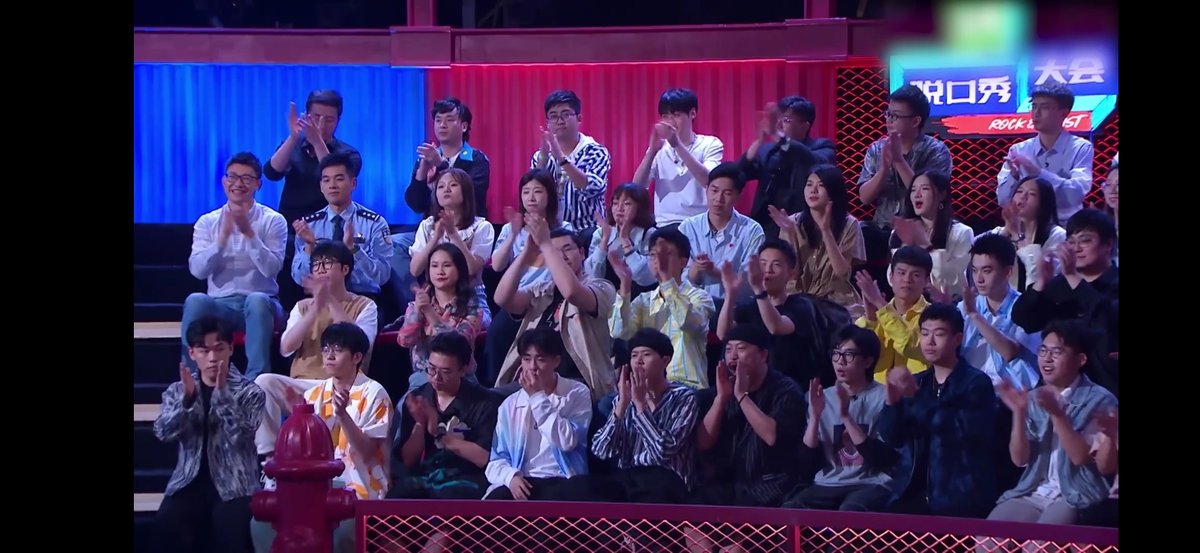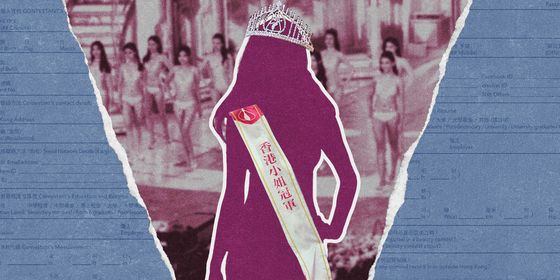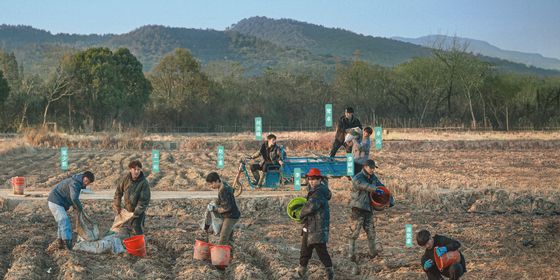Why did comedy show “Rock & Roast” get famous—and will its popularity last?
“If I hadn’t brought stand-up comedy to China, there would have been no Rock & Roast, and then I would not have had the chance to stand here today as a contestant for the show,” Chinese-American comedian Huang Xi, better known abroad as Joe Wong, joked during his performance in the first episode of Season 4 of the popular stand-up comedy competition this August.
“When I came back to China in 2013, I was better known than stand-up comedy…Seven years later, however, Li Dan [who was once a freelance scriptwriter for my show] has become the most popular comic,” he said, referring to the organizer and host of Rock & Roast (《脱口秀大会》), one of the four founders of Shanghai-based comedy company Fun Factory (Xiao Guo Culture Company). Fun Factory produces another well-known show Roast (《吐槽大会》), a localized version of American celebrity roast series Comedy Central Roast.
Wong’s appearance won four lights of approval from Li and the other three judges, or “laughter-leaders (领笑员)” as coined by the show. He also got a standing ovation from all four judges and 56 contestants, as many Chinese comedians refer to Wong as their “ancestor” due to his 15-minute performance at the 2010 annual gala hosted in the White House by the Radio and Television Correspondents’ Association (RTCA), the first comedian of Chinese heritage to appear in the event.
As Wong stated during Rock & Roast, stand-up comedy in China has developed from scratch and changed dramatically in the last decade. TV shows may have become the quickest means for an ordinary comedian to gain fame. In Rock & Roast, 56 professional and amateur comics, including those from Fun Factory and other comedy companies like the Beijing-based Danliren, give 5-minute performances, in which they make fun of their own experience and observations on various topics, including appearance, relationships, and work, and advance through the rounds based on votes from the four judges and a live audience.
As Cheng Lu, a Rock & Roast competitor and chief scriptwriter of Fun Factory, said during an interview on another show this August, when he first started as a comedy screenwriter in 2012, “I believed the industry would be popular, but did not expect it so quickly.” But the industry’s seemingly unexpected boom has not come without problems.
Debuting in July 2017, the show’s ratings quickly soared. Statistics from Tencent Video, the video platform which produces and streams the show, showed that viewership nearly doubled between each of the first three seasons, from 69.86 million during the first season to 200 million during the third. That third season, which premiered in 2020, was rated 8.0 out of 10 points on China’s major reviewing app, Douban.
The short performances are loaded with punchlines to match young viewers’ habit of “fragmented cultural consumption,” Xia Ying, professor of philosophy from Tsinghua University, wrote in an op-ed for Party newspaper Guangming Daily last October. Xia argued that this model is more in tune with the times than more formalized traditional comedy, such as crosstalk (相声).
Pang Bo, an IT engineer turned stand-up comic from Fun Factory, who became the champion on Rock & Roast Season 1, partially agreed. “As a new art form…the show encourages performers to try using different elements…like props, PowerPoint, or music and other sound effects,” Pang told GQ magazine last November. In the current season, the comedy duos Roushi Dongwu (肉食动物, “carnivorous animal”) and Chengse Yujing (橙色预警, “orange warning”) have also introduced manzai, a more niche comedy format adopted from Japan.
But the most important reason for the surging popularity of stand-up comedy in China lies in the fact that many of the topics comedians touch on—like work, life, and relationships—are relatable to youthful audiences, according to Xia. “The roast of the workplace really said what’s been on my mind!” one user commented on a Season 4 work-themed episode of Rock & Roast on question-and-answer platform Zhihu, applauding the performers’ observation about penny-pinching bosses and the “996” work culture (9 a.m. to 9 p.m., six days a week), and winning hundreds of likes. In another comment, the same user praised the show for “raising empathy” between the comedian and audience.
The show seems to be an outlet for both audiences and performers. Contestant Niaoniao, who became a full-time comedian last year and received praise for sharing her anxiety about her appearance and her introversion with the audience, told Renwu magazine earlier this September, “What is most painful for a person who is suffering is when other people don’t understand you and trivialize your pain. The loneliness hurts, but when I speak about these issues, it makes me feel less alone.” He Guangzhi, who is best-known for performances ridiculing his own appearance and former poverty (both of which made him self-conscious and lack confidence), agreed in an interview with Vista magazine this September, “Once you’ve spoken out about something bravely, made it funny, and made people laugh, you find that you’ve gotten over this matter in your own heart.”
However, many viewers complained online that this season is less interesting than the last, with the rating for Season 4 dropping to 7.4 from last season’s 8 points on Douban. Detractors criticized celebrity judges like Yang Lan and Ning Jing for their lack of knowledge about stand-up comedy and controversial scoring, as well as the show’s seemingly more conservative topics and contestants’ less provocative roasts.
Even host Li complained in the first episode of this season, saying: “There are less and less topics that comedians can ridicule in the current cyberspace. Performers have played things increasingly safe.” In December of last year, female stand-up comic Yang Li, also a contestant on this season’s Rock & Roast, triggered nationwide debate on gender equality with barbs like “Do men have any bottom line?” and “Men are rubbish,” which resulted in Yang being reported to the National Radio and Television Administration (China’s broadcasting regulator) for “sexism, spreading hatred, [and] instigating social conflict.”
A similarly controversial episode of Roast this March, which featured current and former athletes Fan Zhiyi, Yang Ming, Zhou Qi, and Guo Ailun, poking fun at each other and the poor performance of the Chinese national football and basketball teams, triggered blacklash from both sports communities. A Weibo response from the Chinese Football Association has been interpreted as a veiled warning to the athletes, as it quotes a rule from the CFA’s disciplinary code stating “Players or officials who provoke hostility via media may be fined over 300,000 RMB or even suspended from matches for 18 months.” The state-run Xinhua News Agency urged athletes to “learn from past mistakes” instead of laughing them off, and state broadcaster CCTV suggested audiences not take too seriously the jokes designed solely to make people laugh. The following episode, in which Zhou and Guo retorted to their roast, was never released.
According to Professor Xia, unlike stand-up comedy’s original focus on news and politics in Western countries, comedians in China have paid increasing attention to crafting “short but hollow” punchlines since the art has grown popular mainly through variety shows, which prioritize rapid-fire jokes, physical gags, and sound effects to win cheap laughs. Song Wanbo, a comic from Danliren, told the finance “we media” outlet Shenran Caijing this September that “golden sentences” that play with rhyme and words, such as homophonic puns, are popular because they’re easy to share online and can quickly go viral.
Wong attributed this partially to the pace at which the industry has developed in China. He told Renwu this August, “Stand-up comedy has developed too fast. The eight-to-ten-year learning and cultivation period [for comics] overseas may be shortened to eight months in China…but quick fame may not last, because unlike those “fresh meat” idols who fade after a few months, stand-up comics have to continue creating content.”
This has already happened. Yang, now one of the most popular comics in the country with 2.15 million fans on Weibo, complained during Rock & Roast about the pain of having to write new content, because she’s been busy participating in over a dozen reality shows during the past year, mostly with celebrities. “Should stand-up comedy prioritize conveying ideas or amusing?” she asked the audience during one episode of the show.
All images from Douban















